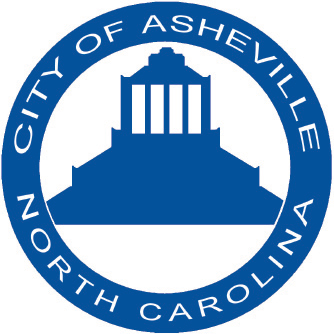Asheville’s new city manager, Debra Campbell, won’t officially take her office until Monday, Dec. 3, but City Council isn’t waiting to move ahead. Before Campbell takes over from interim City Manager Cathy Ball, Council will tackle issues of sustainability, growth and citizen engagement during its regular meeting at City Hall on Tuesday, Oct. 23.
A resolution with potentially far-reaching implications falls at the end of Council’s consent agenda: Item P, which would commit city government to meeting all of its energy needs from 100 percent renewable sources by the end of 2030. A previous version also called for all energy demand in the city to make the renewable transition “as soon as practicable,” but this goal is absent from the language Council will vote to approve.
This commitment, recommended by the city’s Sustainability Advisory Committee on Energy and the Environment, has a more limited scope than a similar resolution passed by Buncombe County late last year. While both resolutions set 2030 as the date for ending fossil fuel use in government operations, the county’s language also specifically establishes 2042 as a target for transitioning all homes and businesses.
However, SACEE chair John Noor told Xpress in August that the city’s resolution will carry more weight than the county’s because it specifically calls on the Office of Sustainability to verify progress on renewables. “The draft resolution goes further than the county’s goal by including accountability metrics that require the city’s Office of Sustainability to annually certify to City Council that the city is on track to achieve the transition goals and has sufficient funding to implement the projects needed to accomplish the transition within the adopted timelines,” he explained.
City staff and Council have both raised financial concerns about the 100 percent renewable goal. “We have to have a better understanding of what is possible within the constraints that the city has to operate in,” said Chief Sustainability Officer Amber Weaver in August. Council member Julie Mayfield added that a commitment to sustainability “doesn’t mean that we will do that at all costs.”
In other business
Affordability is on the minds of Asheville’s residents as well, according to results from the National Citizen Survey that will be presented at the meeting. A memo to Council by Dawa Hitch, communication and public engagement director, notes that 24 percent of survey-takers marked affordable housing as the single biggest issue facing the city. Growth and development concerns were the top worry for an additional 24 percent.
Mobility and transportation issues were most important for 22 percent of citizens, up from 14 percent in 2015. However, respondents have become less stressed about economic development and jobs: Only 16 percent marked those concerns as the top priority, down from 29 percent in 2015.
Civic engagement is on the upswing, with more Asheville residents watching local public meetings on at least a monthly basis than the benchmark for cities of comparable size. But this activity may be driven by dissatisfaction — respondents fell below the national benchmarks for recommending their city to others and optimism about its overall direction.
Some of those engaged citizens will likely weigh in on a proposed seven-story Residence Inn hotel at 324 Biltmore Ave. The currently vacant lot is close to Mission Hospital and could support visitors to the health system’s campus, which city staff cite as a main reason to recommend hotel use on the site. Staff also note that the applicant will build a transit shelter to support travel along three city bus lines.
Lodging projects are facing an increasingly skeptical Council, however. At the body’s Oct. 9 meeting, Mayor Esther Manheimer said she’d briefly considered a moratorium on new hotels and that each project would have to individually prove its worth to the city. Manheimer also shared that Council is planning a work session specifically to consider the impacts of tourism.
Consent agenda
In addition to the renewable energy resolution, Council will consider 15 other items on its consent agenda. Unless specifically singled out for separate discussion, these items are typically approved as a package. Highlights include the following:
- Resolution accepting $32,408 from the federal Department of Justice to fund bulletproof vests for Asheville Police Department personnel. The money requires a match from APD’s already-allocated budget.
- Resolution supporting a “proactive stance” on how federal Opportunity Zone Funds should be spent to avoid displacement and gentrification. The program, enacted as part of the 2017 Tax Cuts & Jobs Act, encourages private investment in low-income communities.
- Resolution authorizing up to $2,222,782 in spending on the Mills River Water Treatment Plant Roof Replacement and Structural Improvements Project. Carolina Cornerstone Construction won the project with a bid over $400,000 less than a competitor.
- Resolution authorizing up to $381,200 in spending to replace the roof of the Linwood Crump Shiloh Center.
Asheville City Council meets at 5 p.m. in council chambers on the second floor of City Hall at 70 Court Plaza, Asheville. A work session for the fiscal year 2019-20 budget will be held in the same space starting at 3 p.m. The full meeting agenda and supporting documents can be found here.




Before you comment
The comments section is here to provide a platform for civil dialogue on the issues we face together as a local community. Xpress is committed to offering this platform for all voices, but when the tone of the discussion gets nasty or strays off topic, we believe many people choose not to participate. Xpress editors are determined to moderate comments to ensure a constructive interchange is maintained. All comments judged not to be in keeping with the spirit of civil discourse will be removed and repeat violators will be banned. See here for our terms of service. Thank you for being part of this effort to promote respectful discussion.